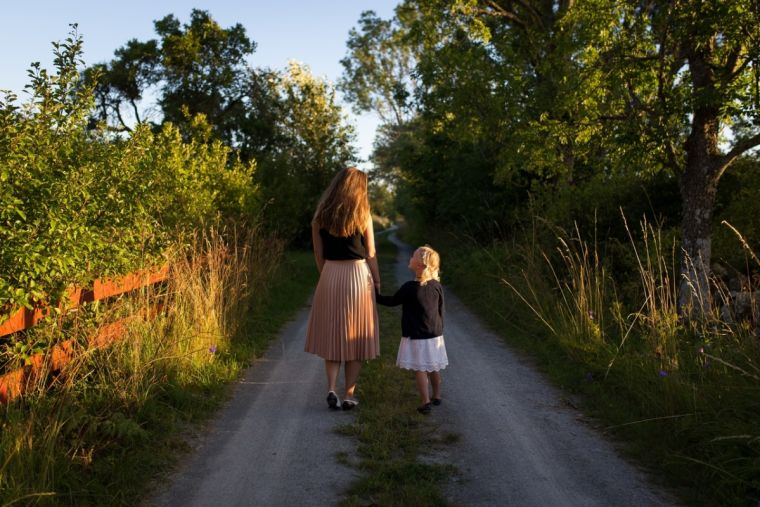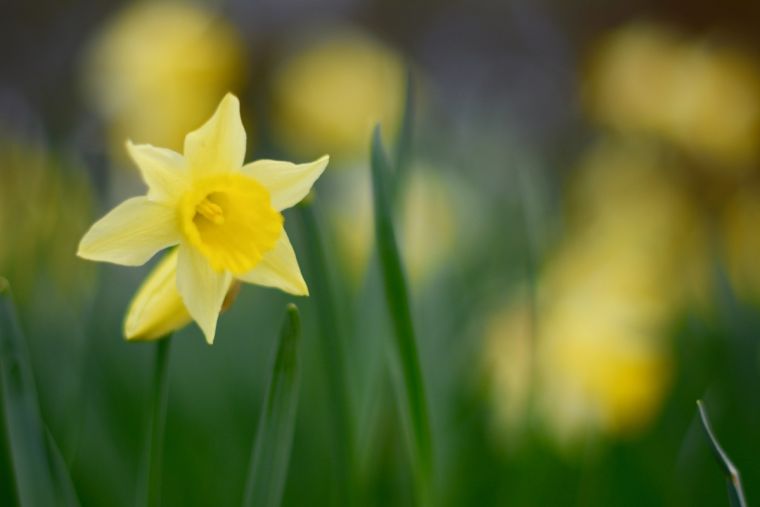Praying God's mercy to light the candle of motherhood

Mothering Sunday in the Christian church and Mother's Day in the US are two different festivals. Here in the UK, the two concepts have become conflated in the minds of many in the secular world. Mothering Sunday, a day when the servant classes would traditionally be given the day off to visit their "mother" church and see their families, tends to be celebrated here in the same way that the later Mother's Day is marked in the US, with cards, flowers and breakfast n bed.
A survey by, ironically, the established Church of Engand, illustrated how the secular and religious concepts have become at the same time conflated yet remain detached from each other. The late Princess Diana came top of of a Church of England poll of who is the "ideal" mother, with the Virgin Mary in eighth place only. Even the fictional Molly Weasley, Ron and Ginny's mother in the Harry Potter novels, and Mary Poppins came ahead of Mary.
When researchers at ComRes asked more than 2,000 British adults what is or was the most important thing their mother has ever done for them, the biggest proportion, a third, said it was that their mother "was always there to support me when I needed her".
The Church is doing the right thing in trying to personalise the concept, and thereby make itself and its message more "relatable" to the increasingly secular young generations.
For many of us, though, who are older, what seem forgotten is the struggle to survive and get on when your own experience comes nowhere close the ideals represented by Mary, Diana or even Molly Weasley.
My own late mother certainly tried her best, which is all we can expect from any mother but circumstances related to mental illness around her made her life extremely hard on a number of fronts. How can a mother be "there" for every one of a large number of children she has, when there is nobody to be "there" for her? And what do you do if it becomes clear, quite early on in your life, that while your own mother might love you, she actually does not like you very much?
I wanted children all my life, but a legacy of life problems, combined with my own warring subconscious, meant I kept getting myself into situations that were simply not open to the possibility of children. Not remotely.
My own "ideal" mother is nowhere near the top of the Church poll. She is Sara, husband and "sister" of Abraham. She lived to 127. When told she would have a son, Isaac, at a very old age, she simply laughed. Her personal life was messy to say the least. Her husband had a child with another teenager while she was married to him. Yet she was a survivor.

I remember well my own traumatic years of childlessness. Days spent on my knees, crying in a nursery prepared for a baby that it was clear would never arrive. Being told to stop wallowing in self-pity and think of myself as "child free" rather than "childless". Receiving emails from friends saying "get on with it" as my 30th, 35th and then 40th birthdays approached and vanished. If only they knew how desperate I was, and how impossible it was to conceive in my particular circumstances – and had been for nearly two decades.
The answer came through prayer. I visited the Lady Chapel at Westminster Cathedral on my own, at a time when it was almost empty, lit a candle and wept for an anwer. I felt something pass, like a breath of air, through my very soul. Was it God? I believe so, certainly, although my subsequent actions were hardly in line with conventional Christian morality. I did and do believe in God's mercy, as outlined so eloquently by Pope Francis. I learned that the answer had been there in front of me for all those years and I had been unable to see it. I saw the mistakes I had made and resisted the temptation to blame, as my own wilful temperament was as much responsible as anyone or anything else. I saw the way forward. A few weeks later, I found a priest and went to formal confession for the first time in my life, and at the age of nearly 41 had my first child.
A couple of years later, I became pregnant again but had a miscarriage, one of the most horrible and traumatic experiences of my entire life. I was by then too old to have another child. The menopause followed quickly.
Financial necessity means that from when our son was a small baby I've had to work full time. So I've not always been there for him. But now we have mobile phones, which my mother never had. Oh that she had. If we could have just communicated better, might things have been different?
Our son is part of the new i generation, or generation z, or however they end up being styled. I love being a mother and would have loved more children. I thank God for the candle of motherhood that was lit for me then in that hour in the Lady Chapel at Westminster Cathedral, and today of all days, pray so hard for all those who are still suffering like I suffered for so many years.
Ruth Gledhill is multi-media editor of The Tablet and an editorial adviser to Christian Today. Find her on Twitter @ruthiegledhill











